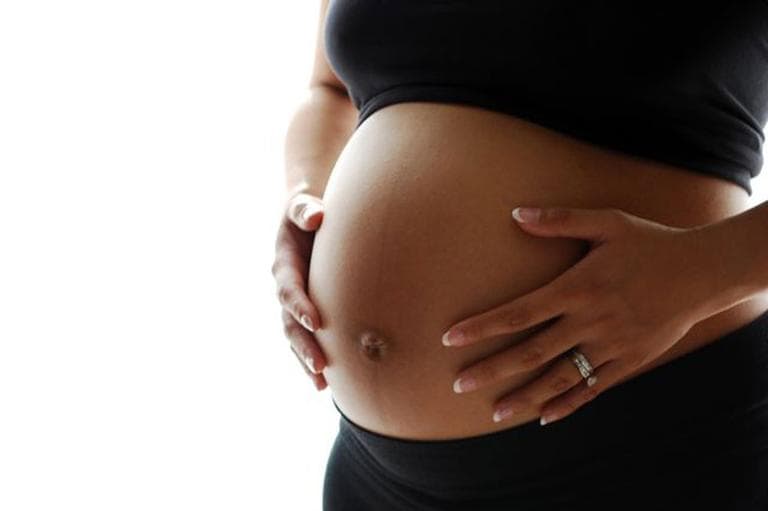Advertisement
The Facts Behind Pregnancy Rules
ResumeNo caffeine, no alcohol, no sushi, goes the standard mantra for pregnancy. Is that right? Plus: NASA's moondust mission.

Guests
Emily Oster, author of "Expecting Better: Why the Conventional Pregnancy Wisdom is Wrong — and What You Really Need to Know." (@profemilyoster)
Dr. Jeanne Conry, president of the American Congress of Obstetricians and Gynecologists. Assistant physician in chief at The Permanente Medical Group in Roseville, California. (@conryjeanne)
Closing Segment On NASA Moondust Mission
Emily Lakdawalla, senior editor of the Planetary Society blog. (@elakdawalla)
From Tom's Reading List
The New York Times: Pregnant, and Disputing the Doctor -- "During her pregnancy, Emily Oster didn’t appreciate her doctor’s habit of issuing blanket rules: Don’t gain more than 35 pounds. No need to discuss amniocentesis — you’re not 35. No eating in the delivery room."
Associated Press: Book Challenges Pregnancy Strictures — "I think we see sometimes where practice lags behind recommendations. Not all practitioners, obviously. As an example, in the case of prenatal testing, even though more recent recommendations don't favor the 35-year-old cutoff as much, that's still a highly practiced thing, so I think there's a sense in which there is some slow creep of knowledge."
Excerpt: 'Expecting Better' by Emily Oster
Interview Highlights
Emily Oster on drinking alcohol in moderation during pregnancy:
"It's very clear that excess drinking during pregnancy is bad. I think everyone agrees on that. I think when you turn to light drinking, there's more disagreement. I think many obstetricians like mine will tell you a couple drinks, a few drinks a week is fine. I wanted to understand the source of that disagreement, and I think for many women, especially when faced with conflicting advice, there's the impetus to go to the source and understand. And I think when you look at the data, you see a variety of pretty large, well designed studies which show that the children of women who drink in moderation — I think it's very important to be clear that that means no more than a couple a drinks a week in the first trimester, no more than a drink a day in later trimesters — that the children of women who drink at those levels don't show any additional complications relative to women who abstain. And so I suggest that many women may look at that and think perhaps it's OK to have the occasional glass of wine, but that really this is something where we should be encouraging people to look at the data and think about this decision."
The National Organization on Fetal Alcohol Syndrome disagrees with Oster and issued this statement outlining the dangers of drinking during pregnancy. Dr. Jeanne Conry agreed with NOFAS:
"We know that alcohol consumption is the leading known cause of mental retardation in the United States. It is associated with lifelong learning disabilities, with birth defects, neurological behavior impairments. Alcohol crosses the placenta. And it is clearly avoidable. There is no known benefit of alcohol during pregnancy. So that puts it into perspective. We've got alcohol spectrum disorder. Clearly we all realize that high intake of alcohol is associated with some of the more severe complications. But what we haven't been able to show is any level that is absolutely safe. To give you an example: University of Washington, where some of the largest, long term studies have been done ... where fetal alcohol syndrome was first diagnosed and identified as a disorder several decades ago. They've got longitudinal studies, so long term studies of children with it, and they found that 1 in 7 was born to a mom who had low to moderate alcohol intake. What they said was they could not predict which child was going to develop fetal alcohol syndrome or some part of the spectrum. They could not predict which mother was going to give birth to a child with fetal alcohol syndrome or some aspect of the spectrum. So if we cannot predict which amount or which one is going to be a risk, then we've got 9 months and we recommend abstinence. We say you're better off not consuming any."
Oster took issue with Conry's citation of the University of Washington study, saying that it was not a peer-reviewed study. Oster also noted that the women were drinking 1 to 8 drinks a week in the first trimester, and it was unknown how much they were drinking at a time.
This program aired on September 6, 2013.